Science
 Science is an integral part of the curriculum at John Stainer Primary Community School.
Science is an integral part of the curriculum at John Stainer Primary Community School.
Children are naturally curious and have many questions about the world around them.
We provide all children with the necessary core scientific knowledge and investigative skills to answer their questions about these processes through the disciplines of biology, chemistry and physics.
We encourage every child to engage with scientific concepts to understand how the field of Science can be used to observe, predict and analyse causes. Using a variety of scientific enquiries, we aim to inspire children to fully understand the uses and implications of Science today and in the future.
Embedded in our Science lessons are opportunities to use a variety of investigative skills, including:
- generating their own lines of enquiry
- making predictions
- analysing results
- observing changes over time
- collecting results in a variety of ways
- drawing conclusions from their observations
- evaluating their own method and the reliability of their results.
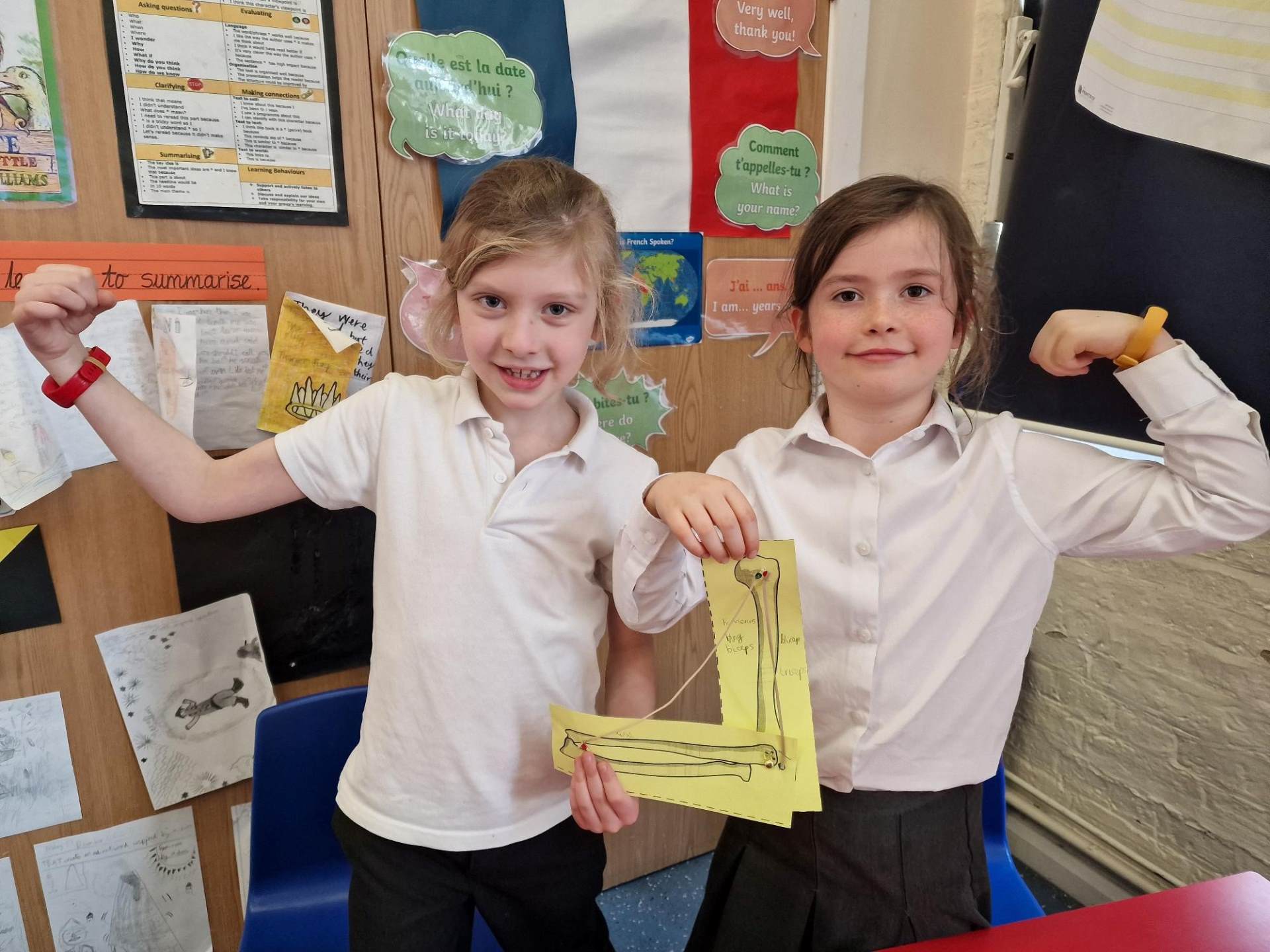
Underpinning this, is an emphasis on children actively participating in their own practical investigations and experiments, utilizing the classroom, wider school grounds and the local environment and community.
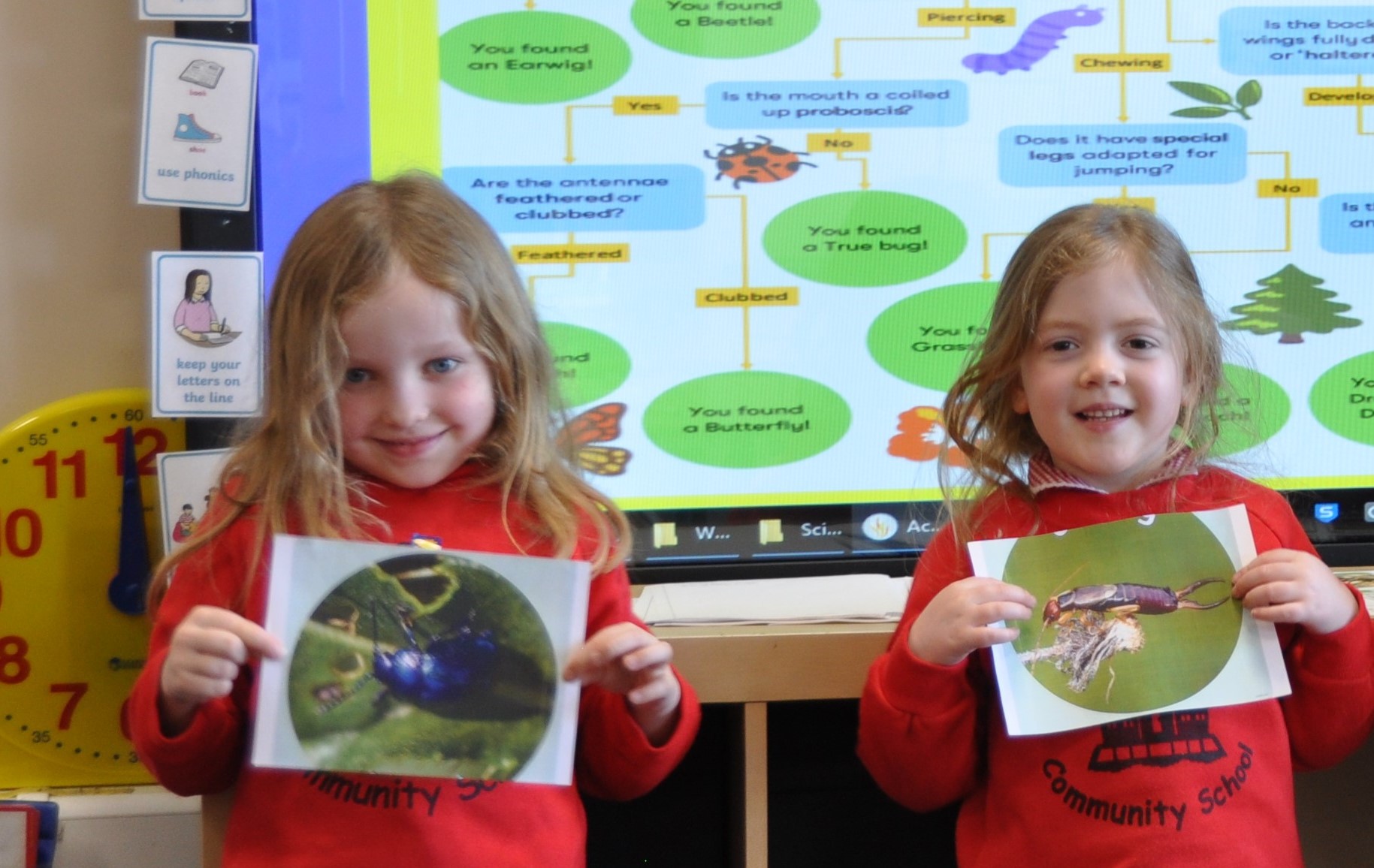
The school’s priority is to provide a widely differentiated curriculum, for all children to access, at their level of understanding and use robust assessment to provide tailored teaching.
Lessons are engaging, practical and fun; this helps to deepen children's understanding while enabling them to make links to the real world.
/i/video/4020E2E2-1638-4AAB-A79B-283C9BFED893.mov
Science Week
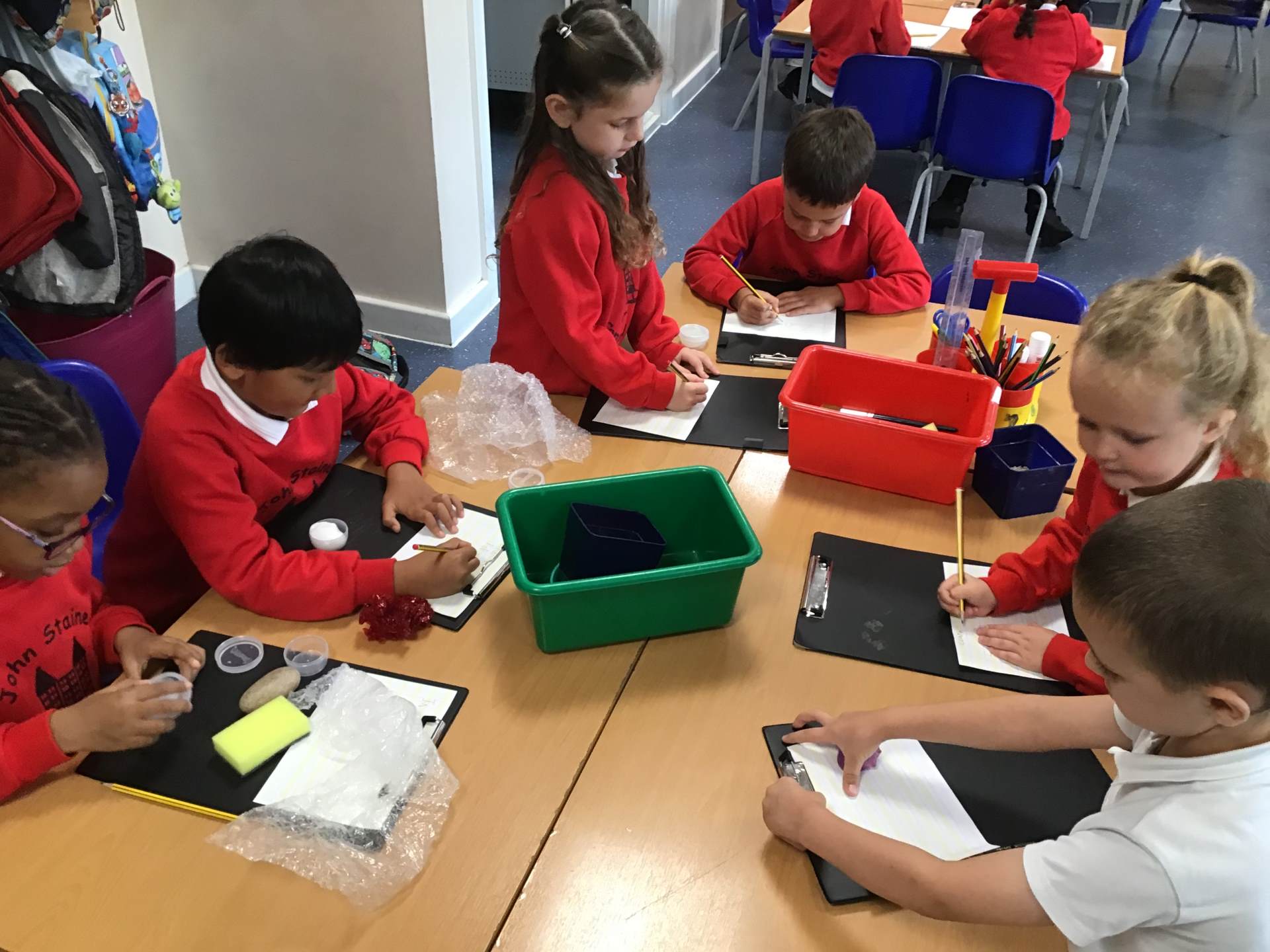
Every year, we conduct a Science Week.
‘Science Week’, is a whole school initiative to raise the profile of science within the school and the school community. The children (and their families) take part in a variety of science focussed activities throughout the week. This year’s theme was ‘Growth’ and we decided to create a giant, human bar graph to determine how much our school community has grown since the Year 6 children started in Reception. We did this by gathering all children that started at John Stainer, in reception class and took a photograph of them lined up in their classes, from the roof garden. We then repeated this step, only this time we included all children currently on roll at John Stainer. As I am sure you will agree, the results are amazing.
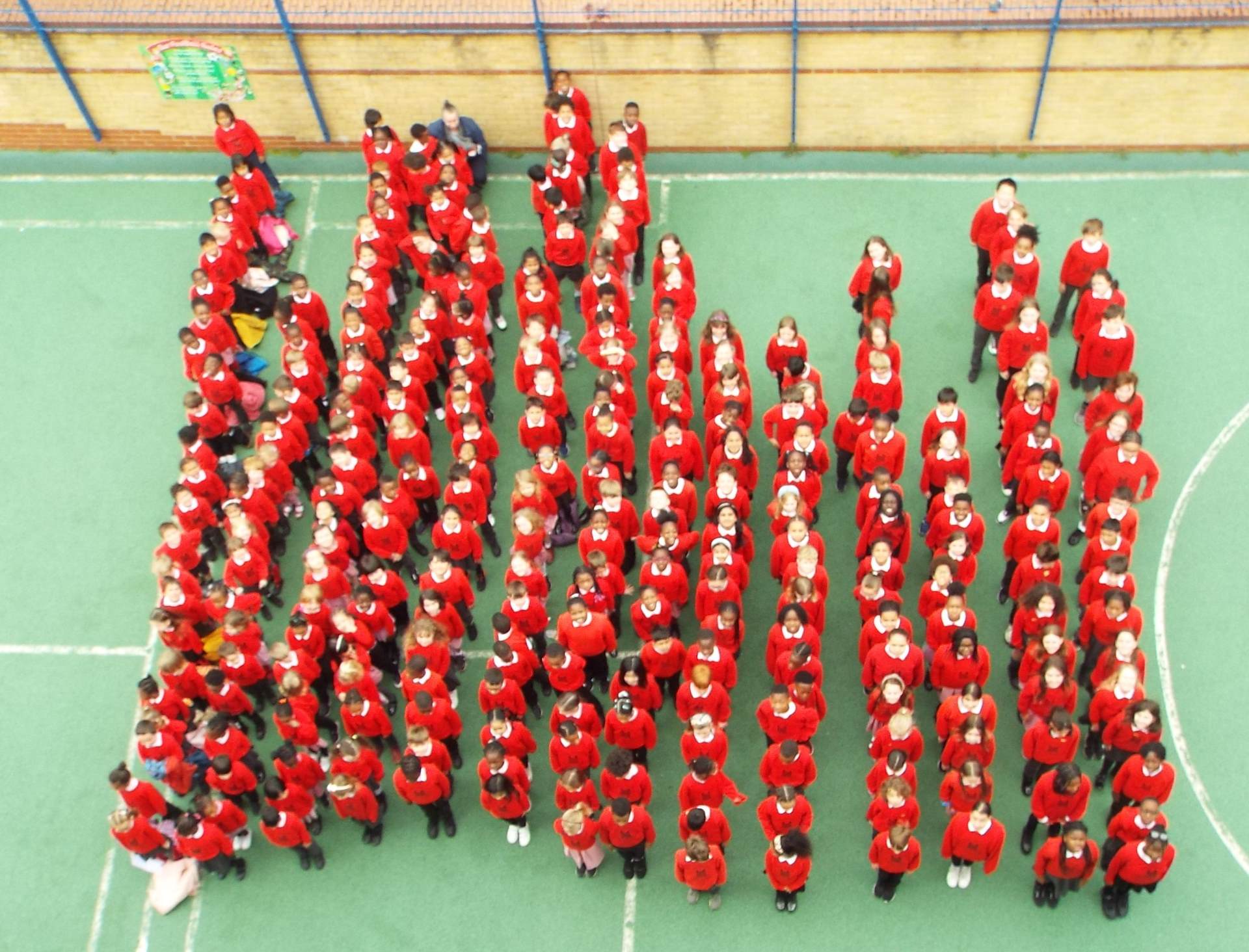
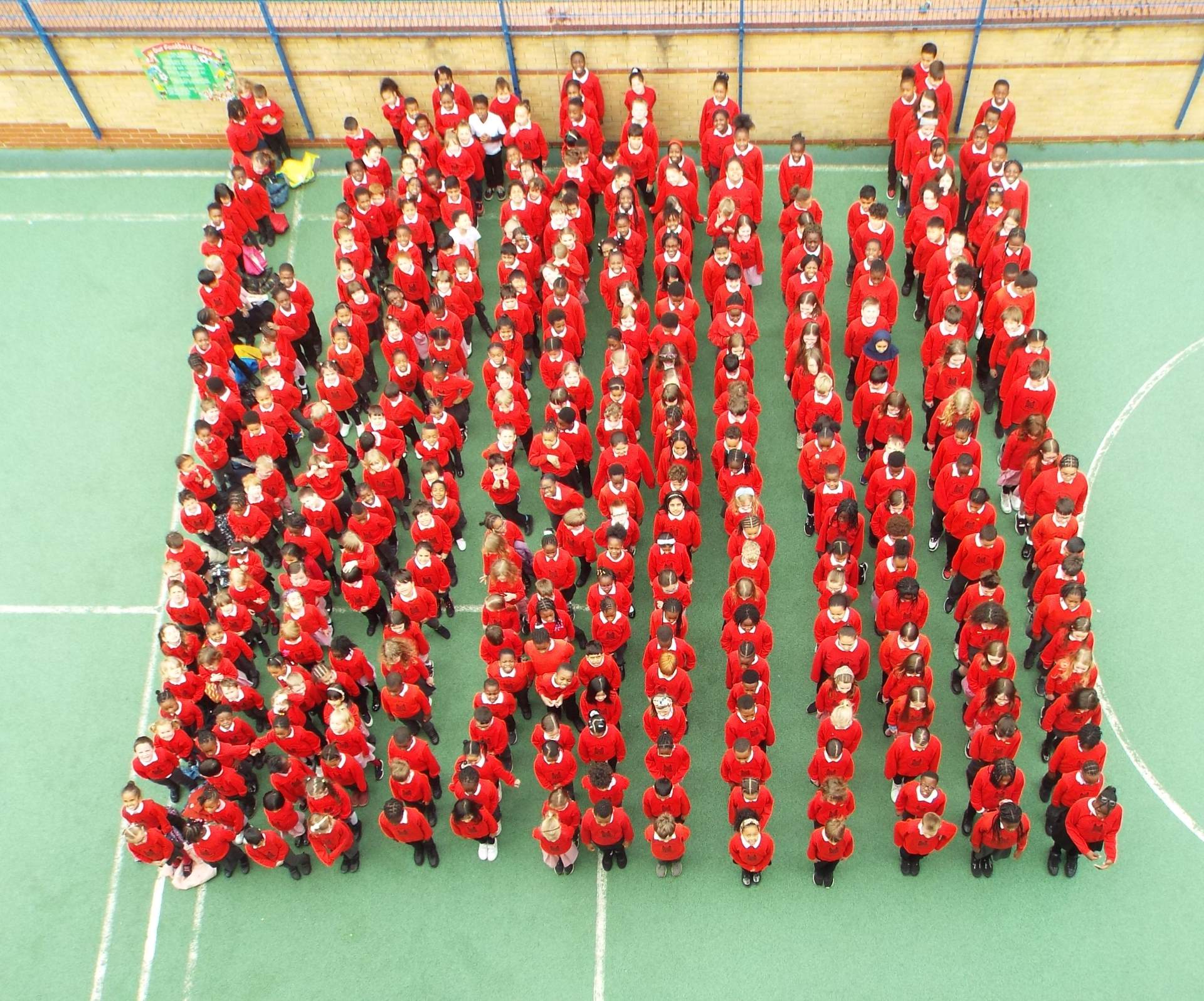
The photograph on the left shows the children that joined the school in reception class or earlier and the photograph on the right, also includes the children that are currently on roll.
Intent
At John Stainer, our intent is:
- To build scientific knowledge and acquire scientific vocabulary sequentially developing conceptual understanding progressively through each year group.
- To explore ideas by developing scientific enquiryand investigative skills such as observing and classifying and be able to apply mathematical skills to support their interpretations and analysis.
- To become curious scientists asking questionsabout the world around them, and using their knowledge and skills to seek answers and draw conclusions.
- To acquire knowledge of the uses and implications of science both today and in the future.
- To experiment, question and analyse with responsibility, resilience respect, courage and cooperation.
Implementation
- We are committed to implementing our Science curriculum by providing weekly stimulating, practical experiences for all children in the school.
- CPD opportunities offered to staff throughout the academic year through.
- Lessons are sequenced, demonstrating progression and cohesion throughout each topic.
- Learning is enhanced and enriched through the use of school trips eg Brockley Nature Reserve, Deptford Creek and Horton Kirby Environmental Centre (refer to our EVC overview for further information on educational visits).
- Children have the opportunity to work collaboratively, fostering scientific discussion and sharing knowledge and experiences.
- Classroom displays exhibit key questions, key vocabulary and Target Posters with key knowledge and skills that the children need to learn and remember by the end of each unit.
- Children have access to the Target Posters so that they can self assess against the expectations in each unit.
- Children use a range of skills including observations, planning and investigations, and are encouraged to question and explore the world around them.
An example of a Target Poster can be viewed below
Impact
The impact of the Science teaching is regularly monitored. This includes the use of:
- Ongoing formative assessments within lessons.
- Regular conversations with children about their learning in Science
- Monitoring evidence in children's books in Science and the wider curriculum.
- Checking that children have learnt key Scientific vocabulary for each unit and that they know and remember the key targets listed on the Target Posters.
Beyond the curriculum
Science Fair
//www.youtube.com/embed/pWknOtFARAo#t=0.5

(an erupting volcano - an impressive entry in our Science Fair)
On the final day of science week, we conducted our first ever John Stainer Science Fair.
The children (and their families) were asked to create a scientific experiment or research project, to share with the rest of the school community. We had over 30 experiments on display, show casing the wonderful and inquisitive minds of our young scientists across the school. First, second and third place prizes were awarded for the winners of this project and the children thoroughly enjoyed the experience of entering such a contest.
Science themed day
Also on the final day of science week, the children (and staff) dressed up as an influential Scientist or scientific concept and explained their contribution to Science.
Children enjoyed researching their chosen science theme and sharing their work with others across the school.
Science Quiz
We love to involve the whole school community in Science.
We finished off our science week with a science themed quiz night for the children and their families, with lots of amazing science themed prizes, which is always fun as well as being informative.
Visits to Science lessons in Secondary Schools
Science club
Science club is one of our many extracurricular clubs. Like other clubs, this club is designed to consolidate the learning that takes place in lessons, introduce new skills and techniques and challenge and excite children. Our weekly Science club enables children to better understand and ask scientific questions, form a hypothesis, record their data, and interpret results. The children take part in a variety of experiments, ranging from designing and fabricating balloon propelled cars and building bridges, to making helicopters and the perfect bubble.

We cover a range of scientific principles from a variety of disciplines including, forces, sound, chemical reactions, changing states and many more. All sessions are designed to be very interactive and generate excellent discussion, giving the children opportunity to expand their understanding, apply their knowledge, learn about different scientists and look closely at Science around us.
This page was last updated on 26th January 2024

